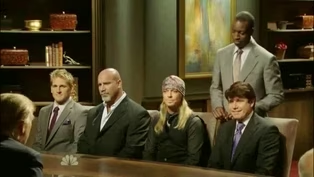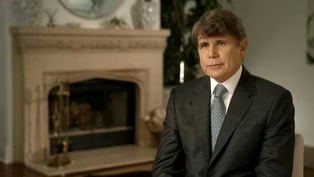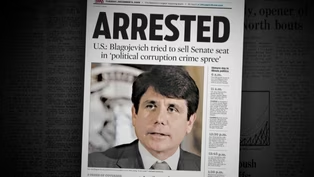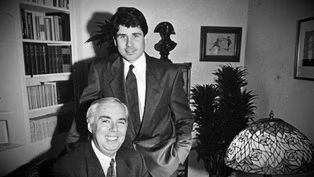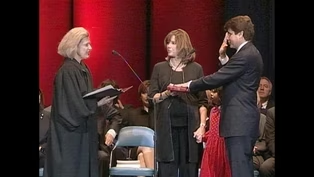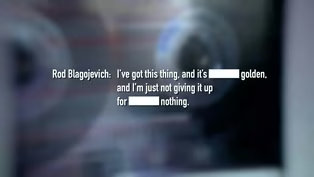Chicago Stories
Extended Interview: Blagojevich on His Chicago Childhood
Clip: 10/10/2025 | 4m 36sVideo has Closed Captions
Former Governor Rod Blagojevich reflects on his Chicago childhood.
Former Governor Rod Blagojevich reflects on his Chicago childhood and his Serbian roots.
Problems playing video? | Closed Captioning Feedback
Problems playing video? | Closed Captioning Feedback
Chicago Stories is a local public television program presented by WTTW
Lead support for CHICAGO STORIES is provided by The Negaunee Foundation. Major support is provided by the Abra Prentice Foundation, Inc. and the TAWANI Foundation.
Chicago Stories
Extended Interview: Blagojevich on His Chicago Childhood
Clip: 10/10/2025 | 4m 36sVideo has Closed Captions
Former Governor Rod Blagojevich reflects on his Chicago childhood and his Serbian roots.
Problems playing video? | Closed Captioning Feedback
How to Watch Chicago Stories
Chicago Stories is available to stream on pbs.org and the free PBS App, available on iPhone, Apple TV, Android TV, Android smartphones, Amazon Fire TV, Amazon Fire Tablet, Roku, Samsung Smart TV, and Vizio.
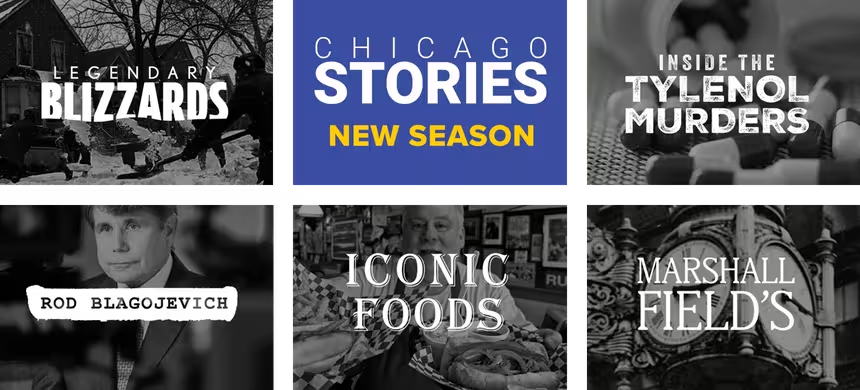
Chicago Stories - New Season!
Blizzards that brought Chicago to a standstill. A shocking unsolved murder case. A governor's fall from power. Iconic local foods. And the magic of Marshall Field's legendary holiday windows.Providing Support for PBS.org
Learn Moreabout PBS online sponsorship- Well, I was raised in the city on the near northwest of the city around Cicero and Grand Avenue.
My mother and father were working people.
My dad was an immigrant factory worker, came from Yugoslavia after World War II, fought in World War II, was a prisoner of war, a Nazi prisoner of war for four years.
Came here under a law that the United States Congress passed, a legislative body, his youngest son would one day become a member, it was called the Displaced Persons Act.
And it allowed my dad and millions of others like him with these long and hard to pronounce last names, a chance to come to America and live in a country that promises to be free and the land of opportunity.
And my father to the day he died, always loved America, felt it was a special place even though his ship never came in 'cause he was always a factory worker and a working person.
He believed that if it wasn't there for him, it would be there for his sons and both my mother and father were loving parents, working people, both my dad, Finkl Steel Company was among the places that he worked.
And my mom worked for the Chicago Transit Authority taking fairs and passing out transfers at the subway stations.
And before that, she worked at a plant, the Echo Factory, utensils factory, which was just on the other side of Cicero Avenue.
Across the alley and across that busy street where my mom worked, my brother and I got jobs as little boys, shoeshine boys.
So I went to public school.
I wasn't exactly setting the world on fire in school, but because of the sacrifice and hard work of my parents, they struggled and scrimped and saved and sent me to college.
And I had a chance because of that opportunity to actually live the American dream until the nightmare that came years later.
But very grateful for my background and very grateful for the love and support of my parents.
It really starts there, doesn't it, with our parents?
- [Interviewer] Yeah, tell me about your Serbian heritage a little more, you know, what was that like?
You and your brother, did you participate in sort of cultural experiences?
- Yes, we did.
Well, my father, being an immigrant and coming from the old country, it was very important to him that he raised his sons in the Serbian church and that we were able to learn something about our culture.
My mother was American-born.
Now, her parents came from the old country.
But I like to say that had my mom come from the old country like my dad and my first name would've been as hard to pronounce as my last name.
My mother saw that my brother and I were gonna be raised in America, so she was certain to assure that we had American first names.
But my dad was very much insistent that we'd be active in the church and some of the cultural activities.
We played in a Serbian cultural orchestra called the Tamburitza and it wasn't our choice, my father made us do that.
We were little boys and we'd have to take two CTA buses to actually go to practice and it was, for us, kind of a rough neighborhood carrying those instruments.
It was a character builder because you learned to deal with embarrassment.
But we did it until we were old enough to basically say we didn't wanna do it anymore.
But I look back on that now and it was, I think, good parenting because it's important, I think, for children at a young age to be exposed to different things and to be active and not just sit at home and do nothing.
So we'd go to school, then we'd go shine shoes after school.
My brother and I were very much inclined to love sports and wanna play sports in the neighborhood and go to the school yard where I played basketball a lot and we played some of the versions of baseball, a game called fast pitching, which in Chicago back then was very prominent.
You used chalk and you'd write a square, draw a square on the school building, and then with a rubber ball, you'd have a pitcher pitch and that was the strike zone and you'd bat and there'd be two guys against two guys, we played that a lot.
And then we'd do the Tamburitza and then we were always going to church on Sundays and, you know, some of your listeners may not believe it, but I was actually a choir boy, not a choir boy, but I was actually an altar boy for a while.
Never a choir boy, you can't be a choir boy if you're going into politics.
Extended Interview: Blagojevich on His Commutation
Video has Closed Captions
Clip: 10/10/2025 | 10m 20s | Blagojevich discusses his commutation and seeking a presidential pardon. (10m 20s)
Extended Interview: Blagojevich on His Record as Governor
Video has Closed Captions
Clip: 10/10/2025 | 5m 43s | Former Governor Rod Blagojevich discusses his record as governor. (5m 43s)
Extended Interview: Blagojevich on His Time in Prison
Video has Closed Captions
Clip: 10/10/2025 | 12m 42s | Former Governor Rod Blagojevich examines his time in prison. (12m 42s)
The Political Downfall of Rod Blagojevich
Video has Closed Captions
Clip: 10/10/2025 | 3m 53s | Rod Blagojevich is arrested, impeached, and removed from office. (3m 53s)
Rod Blagojevich’s Early Life and Career
Video has Closed Captions
Clip: 10/10/2025 | 8m 52s | Rod Blagojevich grew up in Chicago and began his political career in the city. (8m 52s)
Rod Blagojevich’s First Term as Governor
Video has Closed Captions
Clip: 10/10/2025 | 5m 31s | Rod Blagojevich’s first term as governor began in 2003. (5m 31s)
Wiretapping Governor Rod Blagojevich
Video has Closed Captions
Clip: 10/10/2025 | 9m 2s | Authorities open a wiretap to investigate Blagojevich. (9m 2s)
Providing Support for PBS.org
Learn Moreabout PBS online sponsorshipSupport for PBS provided by:
Chicago Stories is a local public television program presented by WTTW
Lead support for CHICAGO STORIES is provided by The Negaunee Foundation. Major support is provided by the Abra Prentice Foundation, Inc. and the TAWANI Foundation.
